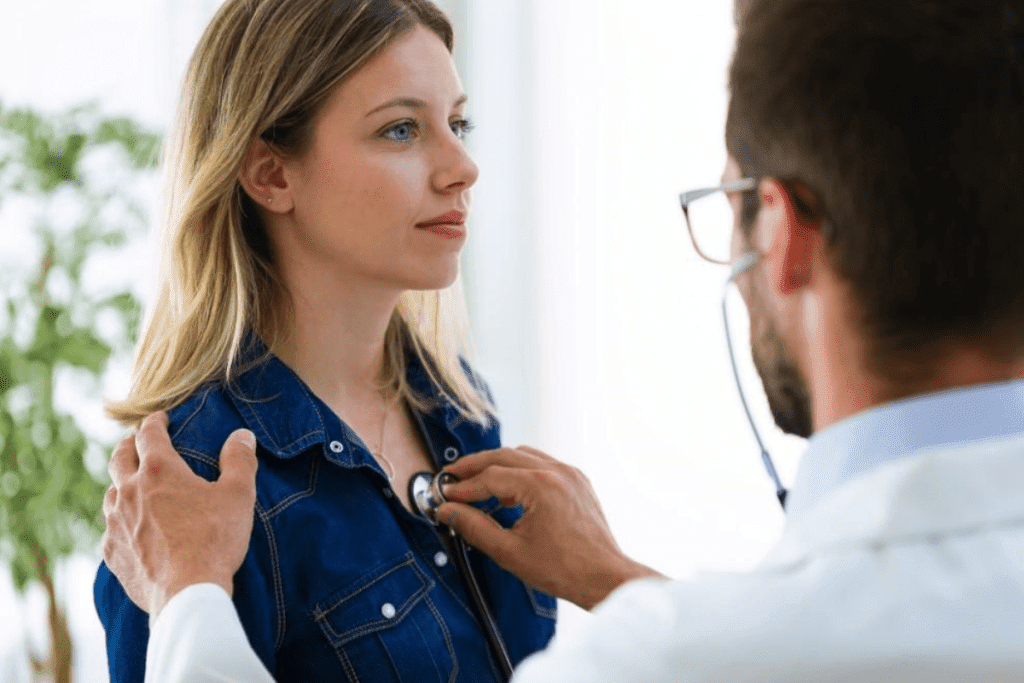Taking care of one’s health is of paramount importance, and a crucial aspect of this is routine check-ups and examinations. For women, a wellness exam is a fundamental component of preventive healthcare. These exams are not only vital for maintaining overall health but also for addressing specific needs and concerns that are unique to the female body. In this comprehensive guide, we will explore what a wellness exam for a woman entails, its importance, what to expect during the exam, and answer some frequently asked questions to ensure women are well-informed and empowered to take charge of their health.
Table of Contents
Section 1: Understanding the Wellness Exam
A wellness exam, often referred to as a well-woman exam, is a routine health check-up specifically designed for women. It is a comprehensive assessment that focuses on various aspects of a woman’s health, including physical, reproductive, and emotional well-being. These exams are typically conducted by a primary care provider, such as a family physician, internist, or a gynecologist, and are tailored to meet the unique needs of female patients.
What Does a Wellness Exam for a Woman Entail?
A well-woman exam includes several components:
Medical History: The healthcare provider will review the patient’s medical history, including any existing conditions, medications, and previous surgeries.
Physical Examination: A thorough physical examination is conducted, which may include measuring height, weight, blood pressure, and examining the heart, lungs, breasts, and abdomen.
Breast Examination: Breast health is a critical component of the well-woman exam. The provider will check for any lumps, changes, or abnormalities in the breast tissue.
Pelvic Examination: For women of reproductive age, a pelvic examination may be performed. This involves inspecting the external genitalia and conducting a Pap smear to screen for cervical cancer.
Screening Tests: Depending on age and risk factors, additional tests such as mammograms, bone density scans, and blood tests may be recommended.
Discussion of Health Concerns: Patients have the opportunity to discuss any health concerns, questions, or issues they may be experiencing with their healthcare provider.
Immunizations: The wellness exam is an opportunity to update vaccinations, including the HPV vaccine and influenza vaccine, depending on the individual’s age and medical history.
Contraceptive Counseling: For women of reproductive age, contraceptive options and family planning may be discussed.
Mental Health Assessment: Mental and emotional well-being are equally important. The healthcare provider may inquire about mental health concerns and offer guidance or referrals if necessary.
Health Education: Patients are provided with information on maintaining a healthy lifestyle, including diet, exercise, and managing stress.
Section 2: The Importance of Wellness Exams for Women
Wellness exams for women are vital for several reasons, as they offer a range of benefits that contribute to overall health and well-being:
1. Early Detection of Health Issues:
One of the primary objectives of a wellness exam is to identify potential health issues early. Regular check-ups enable the detection of conditions like breast cancer, cervical cancer, and various other diseases in their initial stages when treatment is often more effective.
2. Preventive Care:
These exams emphasize preventive care, including vaccinations and health screenings. Preventive measures help women stay healthy and reduce the risk of serious illnesses.
3. Personalized Care:
Wellness exams are tailored to the individual’s age, risk factors, and specific needs. This personalized approach ensures that each woman’s unique health concerns are addressed.
4. Monitoring of Chronic Conditions:
For women with chronic conditions like diabetes, hypertension, or heart disease, wellness exams provide an opportunity for monitoring and management.
5. Reproductive Health:
Wellness exams are crucial for reproductive health. They allow for the assessment of fertility, discussion of family planning, and monitoring of pregnancies for expectant mothers.
6. Emotional Well-being:
The emotional aspect of well-being is not overlooked during these exams. Discussing mental health concerns and receiving support or referrals can be vital for overall health.
7. Education and Health Promotion:
Wellness exams also serve as an educational platform. Patients receive information about maintaining a healthy lifestyle, including diet, exercise, and stress management.
8. Building a Relationship with Healthcare Provider:
Regular wellness exams foster a trusting relationship with the healthcare provider. This trust can encourage open communication, leading to better healthcare decisions.
9. Advocating for One’s Health:
By attending wellness exams, women become advocates for their own health. They actively participate in their healthcare journey, making informed decisions about their well-being.
10. Women’s Health Research:
Participation in wellness exams contributes to women’s health research. The data collected during these exams helps researchers better understand female-specific health concerns.
Section 3: What to Expect During a Wellness Exam
Knowing what to expect during a wellness exam can help alleviate anxiety and ensure that the visit is as productive and comfortable as possible. Here’s a breakdown of the typical process:
1. Scheduling the Appointment:
Contact your healthcare provider’s office to schedule a well-woman exam. Be sure to inform them of any specific concerns you’d like to address during the visit.
2. Medical History Review:
At the beginning of the appointment, your healthcare provider will review your medical history. They may ask about any recent changes in your health or medications.
3. Physical Examination:
The physical examination begins with measurements of your height, weight, and blood pressure. The provider will then conduct a thorough examination, including listening to your heart and lungs, palpating the abdomen, and checking the breasts.
4. Breast Examination:
For the breast examination, the provider will inspect and palpate the breasts for any abnormalities, lumps, or changes in texture. You may also be taught how to perform breast self-exams at home.
5. Pelvic Examination (if necessary):
For women of reproductive age, a pelvic examination may be conducted. This typically includes an external examination and a Pap smear to screen for cervical cancer. If you have concerns or specific questions about the pelvic exam, don’t hesitate to discuss them with your healthcare provider.
6. Immunizations and Screenings:
Depending on your age and risk factors, your provider may recommend vaccinations and screenings. These may include the HPV vaccine, flu shot, mammogram, bone density scan, or blood tests.
7. Health Discussion:
The wellness exam is an opportunity to discuss your health concerns. Whether it’s related to physical symptoms, mental health, or lifestyle, your provider is there to offer guidance and support.
8. Contraceptive Counseling:
For women who need it, contraceptive counseling and family planning discussions are part of the visit. Your provider can help you explore contraceptive options that best fit your needs.
9. Mental Health Assessment:
Your mental and emotional well-being will also be addressed during the exam. If you have concerns about stress, anxiety, depression, or other emotional issues, it’s essential to discuss them with your healthcare provider.
10. Education and Recommendations:
At the end of the appointment, your provider will provide you with information on maintaining a healthy lifestyle, managing specific health conditions, and making informed choices for your well-being. You may receive personalized recommendations based on your health status and goals.
11. Future Appointments:
Before leaving, schedule your next wellness exam. The frequency of these exams may vary depending on your age, health status, and risk factors.
Section 4: FAQs About Wellness Exams for Women
To further enhance your understanding of wellness exams for women, here are some frequently asked questions and their answers:
1: How often should I have a wellness exam?
The frequency of wellness exams can vary based on age and individual health factors. In general, it is recommended that women have a wellness exam at least once a year. Women should discuss the appropriate schedule with their healthcare provider.
2: Is a Pap smear always included in a well-woman exam?
Not necessarily. While a Pap smear is a crucial part of cervical cancer screening for women of reproductive age, it may not be required for every woman at every wellness exam. Your healthcare provider will consider your age, risk factors, and medical history when determining if a Pap smear is necessary.
3: What is the difference between a family physician and a gynecologist for well-woman exams?
A family physician can perform well-woman exams and offer a broad range of primary care services. They are suitable for routine wellness exams and can refer patients to specialists if necessary. Gynecologists, on the other hand, specialize in women’s reproductive health and may be more appropriate for women with specific gynecological concerns or those in need of specialized care.
4: Are wellness exams covered by insurance?
Many health insurance plans cover wellness exams as part of their preventive care services. It’s important to check with your insurance provider to understand your coverage and any associated costs.
5: What should I do to prepare for a well-woman exam?
To prepare for a well-woman exam, gather information about your medical history, medications, and any specific health concerns or questions you have. It’s also a good idea to wear comfortable clothing, including easy-to-remove garments for the physical examination, and avoid using any douches or vaginal creams in the days leading up to the exam, as these can affect the accuracy of the Pap smear.
Conclusion
Wellness exams for women are an essential aspect of maintaining good health and well-being. These routine check-ups offer an array of benefits, including early detection of health issues, personalized care, and the opportunity to address specific concerns. By understanding what to expect during a wellness exam and taking an active role in their health, women can empower themselves to make informed decisions and lead healthier, happier lives. Remember, the journey to well-being starts with that first step – scheduling a well-woman exam.



